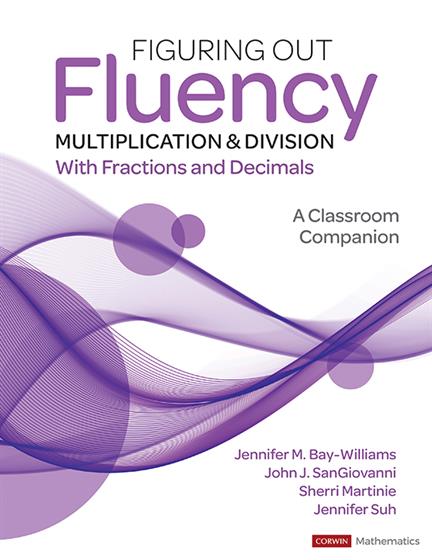Hands-on, Practical Guidance for Educators
From math,
literacy, equity, multilingual learners, and SEL, to assessment, school counseling,
and education leadership, our books are research-based and authored by experts
on topics most relevant to what educators are facing today.

Figuring Out Fluency - Multiplication and Division With Fractions and Decimals
A Classroom Companion
Give each and every student the knowledge and power to become skilled and confident mathematical thinkers and doers.
Product Details
- Grade Level: PreK-12
- ISBN: 9781071825921
- Published By: Corwin
- Series: Corwin Mathematics Series
- Year: 2022
- Page Count: 224
- Publication date: March 08, 2022
Review Copies
This book is not available as a review copy.





